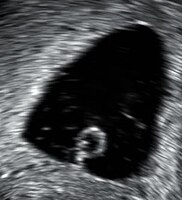
Photo from wikipedia
Objectives A third of pregnant women in the UK are vitamin D deficient, which may confer deleterious consequences, including an increased risk of pre-eclampsia, gestational diabetes mellitus and intrauterine growth… Click to show full abstract
Objectives A third of pregnant women in the UK are vitamin D deficient, which may confer deleterious consequences, including an increased risk of pre-eclampsia, gestational diabetes mellitus and intrauterine growth restriction. This study aims to determine the proportion of women that met National Institute for Health and Care Excellence (NICE) standards for vitamin D supplementation in pregnancy and compare biochemical and obstetrical outcomes according to supplementation status. Design and setting This is a single-centre cross-sectional study in an antenatal centre in Birmingham, UK. Participants received a questionnaire regarding their experiences with vitamin D supplementation during their pregnancy with their general practitioner. Serum 25-hydroxyvitamin D and bone profile results were obtained during the same appointment and obstetrical outcomes were collected retrospectively once participants had delivered. Results 41.8% of participants (n=61) received written and/or verbal advice about supplementation, (NICE standards=100%). 72.6% (n=106) had one or more risk factors for vitamin D deficiency, of which 38.7% (n=41, NICE standards=100%) were asked about supplementation. Among those asked, 85.4% (n=41, NICE standards=100%) received the correct dosage. Compared with the supplementation group, the non-supplementation group had offspring that were 1.40 cm (95% CI 0.01 to 2.80, p=0.04) longer at birth; which was significant after adjusting for confounding factors. No significant differences in any biochemical parameters were observed between supplementation categories (p>0.05). Conclusions Adherence to NICE standards was suboptimal. This may be attributed to insufficient training for general practitioners on the importance of supplementation, causing them to underestimate the consequences of gestational vitamin D deficiency. Recommendations include implementing a mandatory screening tool to identify ‘at-risk’ women and providing more clinician training to ensure that supplementation during pregnancy is standard of care.
Journal Title: BMJ Open
Year Published: 2021
Link to full text (if available)
Share on Social Media: Sign Up to like & get
recommendations!